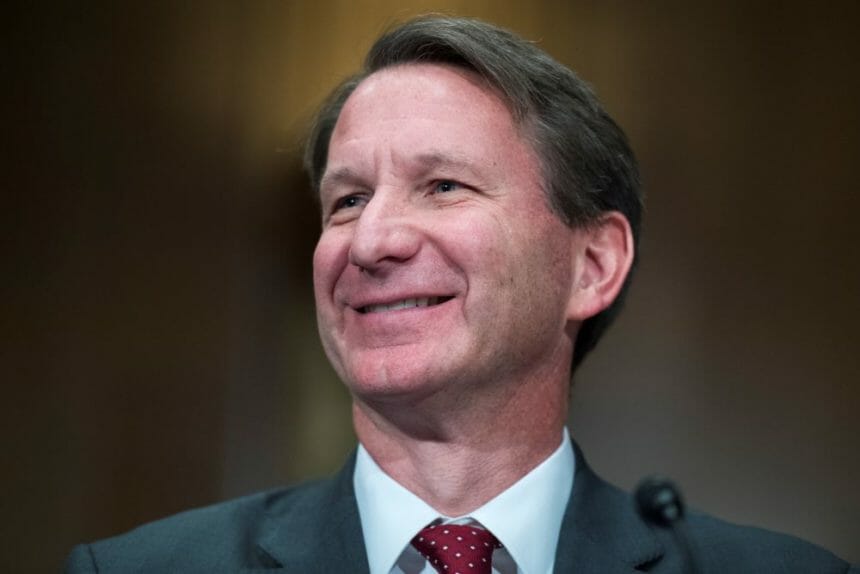The Food and Drug Administration in the post-Scott Gottlieb era will look very much like the FDA in the Gottlieb era, but with fewer Tweets, at least until the 2020 election, according to remarks delivered in Washington, DC, this morning at the Coalition for Healthcare Communication’s Rising Leaders Conference on healthcare policy.
Gottlieb stepped down as FDA commissioner in April. President Donald Trump immediately appointed Ned Sharpless, former head of the National Cancer Institute, as acting director.
“Ned Sharpless is the acting director of the FDA, and at the FDA ‘acting’ tends to mean ‘caretaker,’” said Nancy Bradish Myers, president of Catalyst Healthcare Consulting. “I haven’t heard any political buzz behind bringing him in front of the Senate for confirmation hearings before the 2020 election. The longer there’s no buzz, the harder it gets to do that before the election.”
Following Gottlieb’s retirement announcement in March, much of the media attention focused on whether his successor would continue the outgoing commissioner’s broad agenda—which ranged from cracking down on teen vaping and e-cigarette sales to increasing generic and biosimilar competition as a way to address drug prices and streamlining the drug approval process—or if he would allow momentum to slow, leaving the door open for lobbyists to capitalize on the transition.
Myers said she expects 2019 to be a year in which Sharpless continues to push forward the agenda set by his predecessor, including the implementation of several action plans put forth by Gottlieb, continued work on expedited go-to-market pathways for new drugs and products and improving the efficiency of drug review and updating clinical trial processes. Sharpless, she noted, must also work to maintain the support of the Trump administration, under which the FDA has seen its appropriations grow in recognition of the expanded role it plays in the healthcare matrix.
As reported by Axios today, Gottlieb was returning to the venture capital firm New Enterprise Associates as a full-time investing partner, with a focus on life science startups. He also recently rejoined the American Enterprise Institute as a resident scholar and is a commentator on CNBC.
Myers added that if Sharpless is to put his own touch on the FDA, clues to initiatives he may pursue can be found in his personal priorities before assuming the role of acting director. The consultant said those priorities included modernizing clinical trials, the linking of complex data sets to find patterns and commonalities and furthering the use of biomarkers in research and practice, as well as efforts against smoking and teenage vaping.
The popular Gottlieb got high marks from Myers and FDA for several traits and actions. “People loved his numbers, his communication,” she said. “He tweeted as much as 18 times a day during his tenure, and the FDA offered 414 guidances” while he was in charge, largely because he streamlined the guidance issuance process. (Gottlieb has more than 44,000 Twitter followers; Sharpless has 3,427.) She also said that Gottlieb won the loyalty of FDA staffers by listening to and respecting long-term internal colleagues, something Sharpless appears to be doing, too.
Myers said Sharpless will need to keep watch for potential “icebergs” in the FDAs path, some of them mundane, some linked to the 2020 election. “OMB [Office of Management and Budget] recently issued a memorandum reaffirming its authority to review all new rules before they’re issued,” she said. “That can slow down efforts to advance new policies in 2019 if OMB acts on it.” And a trade war with China, the source of 80% of the active pharmaceutical ingredients (API) in all OTC and branded pharmaceuticals in the U.S., could cause a problem, she said.
Regardless of what happens, Myers said any new leader of the FDA needs to have several key abilities and qualities, including being respected by both the medical community and the key political leaders; vision and decisiveness; strong scientific and technical expertise; good communication skills; political acuity; and the ability to support FDA staff leadership.
“Of course, any of this can be thrown off by political surprises,” she said. “Or an E.-coli breakout on broccoli, or an Ebola outbreak in the U.S.”







